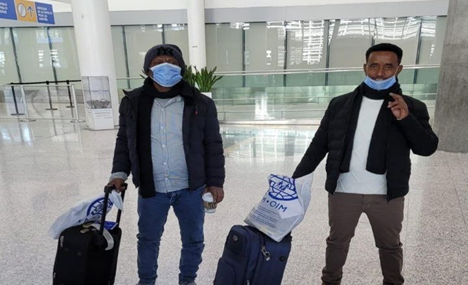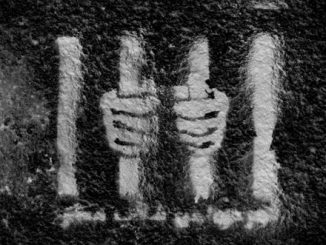
Eritrean asylum seekers Alem Tesfay Abraham and Kibrom Adhanom arrived in Canada on January 20 after spending nearly a decade arbitrarily detained in Egypt.
Alem and Kibrom were detained in Egypt since 2012 and 2013, respectively, and faced mistreatment and abuse during their time behind bars there.
Egypt faced an outcry last year when the government threatened to deport them back to Eritrea, where rights groups warned they would face the prospect of arbitrary detention and torture.
That pressure has finally led to the release of the pair, and human rights defenders celebrated images of their arrival in Toronto.
Egypt currently hosts more than twenty thousand registered Eritrean refugees and asylum seekers, according to the UN High Commissioner for Refugees, and tries to depict itself as a safe haven for fleeing Eritreans.
The government, however, has in recent months deported a number of refugees and frequently cooperates with the Eritrean embassy in Cairo in forcing their return.
In October 2021, Amnesty International urged Egyptian authorities not to forcibly return Alem Tesfay Abraham and Kibrom Adhanom, two Eritrean nationals who have been arbitrarily detained in Egypt for nearly a decade, to Eritrea.
Authorities had threatened to deport Tesfay Abraham and Adhanom, who were arrested in 2012 and 2013, respectively. Meanwhile, rights groups warned that the pair would face certain imprisonment and possibly torture or even execution in Eritrea for fleeing the country without documentation and evading mandatory military conscription.
When undocumented migrants are detained in Egypt, they are normally presented to a military court fairly quickly, given a (usually suspended) sentence, and then provided the chance to apply for asylum. In this case, though, authorities have held Tesfay Abraham and Adhanom without charge—and in inhumane conditions—for years. They have also prevented the two from applying for protection from the UN High Commissioner for Refugees.
After UN experts sent Egypt a letter in July 2020 expressing their concern over the case and requesting more information, prison officials responded by verbally and physically assaulting the two Eritreans and threatening to deport them.
Amnesty International noted that returning Tesfay Abraham and Adhanom to Eritrea would violate the principle of non-refoulement, considering the serious human rights violations they would face there.
The organization demanded that Egypt instead release them and grant them access to asylum procedures, and in the meantime “protect them from torture and other ill-treatment and ensure that they are held in conditions in line with international standards for the treatment of prisoners.”



